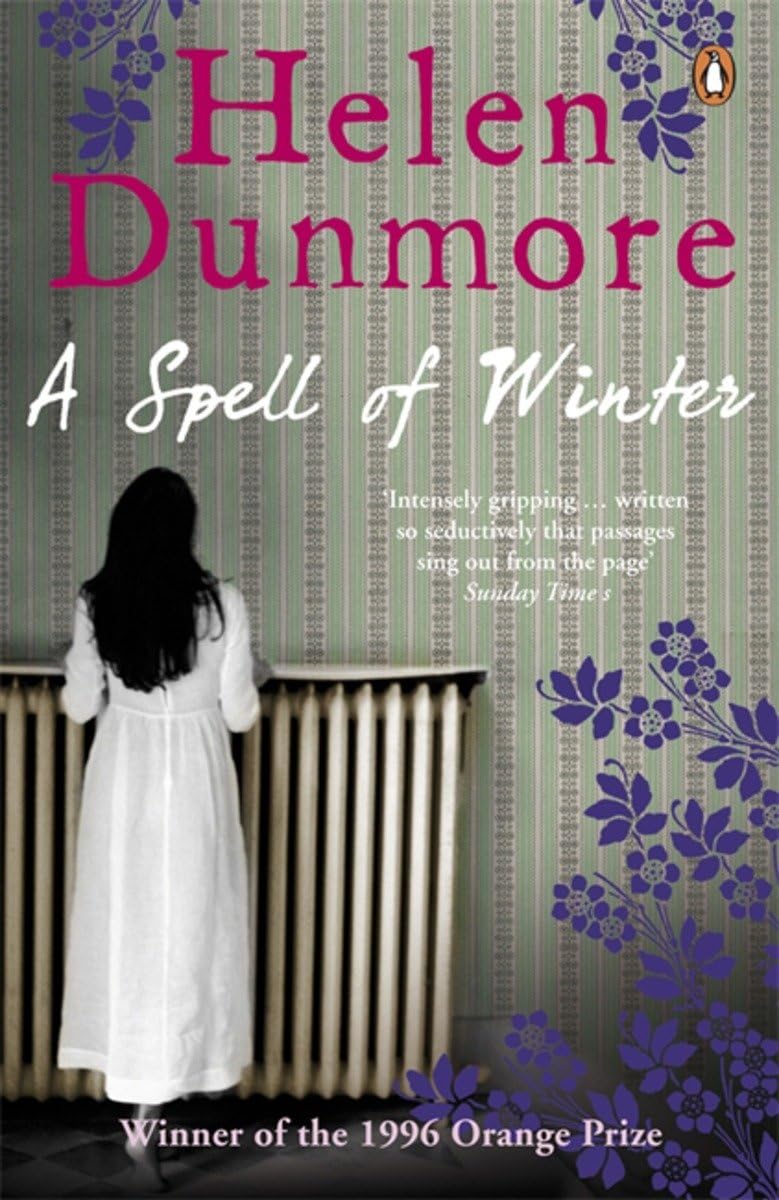
A Spell of Winter: WINNER OF THE WOMEN'S PRIZE FOR FICTION
FREE Shipping
A Spell of Winter: WINNER OF THE WOMEN'S PRIZE FOR FICTION
- Brand: Unbranded

Description
When closely observing the paintings of Richard Tandy, Cathy notices that "the sky was so pale, it dazzled, and behind the wood there was a heap of hills, purple as damsons" (p. 86). Intrigued by the style, she suggests it represents a different "reality" and a different "language." Why did Mr. Bullivant want Cathy to see these works? In what kind of reality does Cathy exist? Mr. Bullivant offers Cathy glimpses of a larger world, and Kate urges her to leave the estate, but she cannot bring herself to act in response. She even states that she's "not sure about anything" except staying at the house (p. 253). Why is Cathy so attached to a house with bad memories? What does this suggest about her psychological complexity? There’s an intense scene in the book after which Catherine is unsure of what really happened. The writing reflects that kind of state of mind: an uncertainty as to what is real and what is imagined. I can see nothing through the frost flowers on the glass. I wonder if it is snowing yet, but I think it is too cold. It will only take a minute to rake out last night's fire and build up a fresh pyramid. There is always enough wood. All I have to do is walk out and gather it. There are five years of rotting trees and fallen branches which have been left to lie in the woods.
The other reason this book came alive for me is that Cathy was such a fascinating, sympathetic, well-developed character, and the depth of emotional complexity that Dunmore was able to excavate with this book was staggering. This book is about sexuality, societal restraints, and female agency, all examined through the lens of one woman's fraught relationship with her own family inheritance. It all sounds like a rather standard female-centric historical fiction novel, but Cathy's journey and Dunmore's psychological insights took on a hard edge that subverted all of my expectations and then some. British Orange Prize–winning Dunmore ( With Your Crooked Heart, 2000, etc.) mixes the spirits of T. Hardy, E. Bronte, and D. H. Lawrence to offer up a country tale of loss, madness, and deep secrecy—all with a vividness that’s luscious and unflagging.Mother was gone, and Father was away. There was Kate to look after us, and Eileen in the sewing-room, and the kitchen warm and humming with people. There was Grandfather in London. There was nothing to be frightened of here. The fluttering shadows only startled me because they were sudden, like moths' wings. Told in gorgeous prose, A Spell of Winter is a strangely beguiling tale that explores forbidden love, the burden of secrets, and the struggle to escape the cloying inheritance of family. Well, are you going or not?' she demanded impatiently. 'It's you that's eating these muffins, not me.' This novel of early 20th century English pastoral life is a compelling story of a brother and sister whose lives evolve from innocent curiosity to protecting family secrets.
Her most recent prize shortlisting, in 2006, was for the Nestlé Smarties book prize for children's fiction, with The Tide Knot, the second volume in a quartet of children's novels set, like Zennor, on the glittering, mysterious Cornish coast. The move into adult fiction in no way derailed her desire to write for children; in fact, she says, "It's something that's actually become more important in the last half-dozen years. Children are a completely different audience, and I enjoy that. There's something about the way they devour books that's wonderful; you don't get many fans of adult fiction sending you beautiful drawings of your characters. And it frees you to layer on the suspense and narrative drama – to create lots of worlds, real and unreal, and move into them. But at the same time, it's just the same as adult fiction in terms of the emotions. It's not milk and water." Comparing herself to the beautiful Livvy, a dowdier Cathy thinks: "I was too like my mother. My face made people think of the things men and women did together in the dark" (p. 66). What does she mean? What kind of face forces people into shame? Contrast this with the shame that Miss Gallagher attempts to stir up in people.
More from The Author
This book is about a woman named Cathy who is trapped in the life she is living, out in the English countryside, because she is scared to go anywhere or do anything. It's ok for others to go off and see places but she can't because she always finds some kind of logical excuse. And that's why she's trapped in "winter", with her life not really moving forward at all even though the years are passing..
- Fruugo ID: 258392218-563234582
- EAN: 764486781913
-
Sold by: Fruugo
